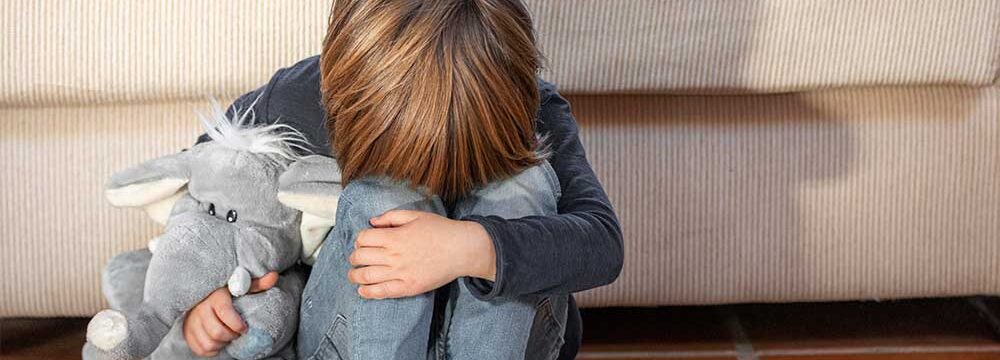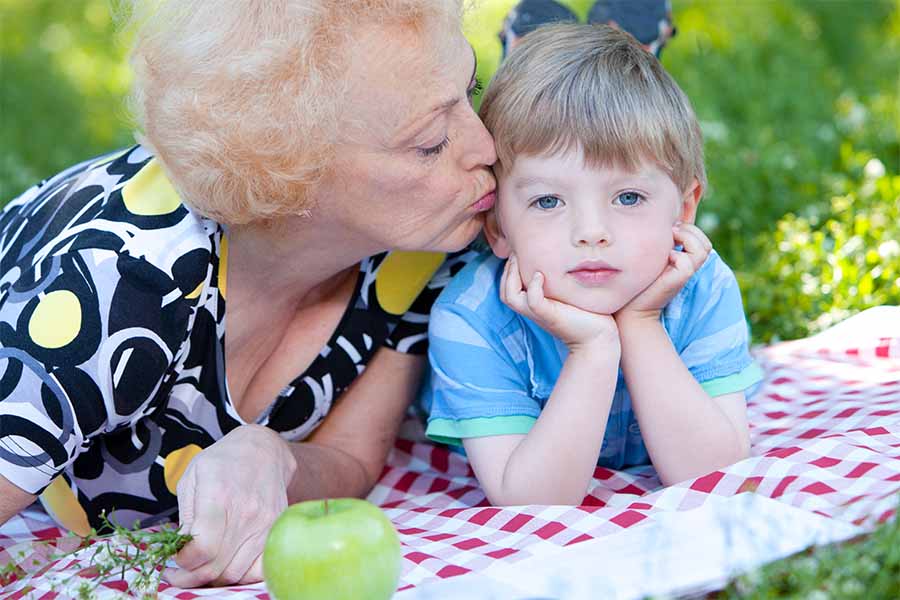Hi, dear mom! It can be quite astonishing and occasionally disconcerting when your young toddler, who once held their grandmother in the highest regard, suddenly adopts an aloof and distant attitude towards her. You may find yourself puzzled, trying to comprehend the cause behind this abrupt shift in behaviour. Fear not, for in this article, we shall embark on an exploration of this perplexing situation together, delving into potential reasons your toddler suddenly just hates grandma.
As children grow and expand their understanding, it is only natural for them to explore various preferences, even for cherished family members like their grandmother. Hence, let us delve into this matter and endeavour to unravel the underlying factors, all the while approaching it with love and comprehension. You are not alone in this journey; we are here to guide you through it!
Read How to Manage Sibling Rivalry [Mom Guide to Promoting Harmony]
5 Potential Reasons Your Toddler Suddenly Hates Grandma
You may be pondering what could have triggered this unforeseen transformation in your toddler’s sentiments. We shall explore five plausible explanations for why your toddler suddenly hates grandma. Remember, each child is unique, and these reasons may not universally apply. Let us now embark on this quest to unravel the matter at hand!
Toddler’s Apprehension Towards Strangers:
Toddlers occasionally experience fear or uncertainty around individuals they are not acquainted with, even if they are familiar with them, such as their grandma. This unease around strangers might cause your toddler to become reserved or unwilling to spend time with their grandmother. Grant your child ample time to adapt and encourage gradual connections to foster a sense of ease.

As a parent, you may also want to know why your kid is having separation anxiety. There are a lot of things that could cause this, like parental reactions, too many routines and many others. – Read to know how best to handle Separation anxiety in your kid
Read Separation Anxiety in Kids [Everything to Know About It]
Divergent Personalities:
Similar to adults, toddlers possess distinct personalities. Sometimes, clashes may arise between their personality traits and those of their grandmother. For instance, if your child is energetic and outgoing while their grandma is more calm and reserved, bridging this gap can prove challenging. Foster activities that align with your toddler’s interests to help bridge this divide.
Disruption of Routine:
Toddlers thrive on routine, and any disruptions can impact their behaviour. Recent changes in your child’s life, such as the arrival of a new sibling, relocation to a different home, or beginning daycare, might lead to altered behaviour towards their grandma. Adhering to a consistent routine and offering additional reassurance during transitions can help instil a sense of security.
Toddler’s Negative Experiences:
Children are perceptive and can detect tension or negative encounters. If your little one witnessed or experienced an unpleasant incident involving their grandma, they may associate those negative emotions with her, and this can be one reason the toddler suddenly hates grandma. Address any underlying issues and cultivate a positive environment where trust can be rebuilt.
Yearning for Independence:
A quest for independence can be another reason your toddler suddenly hates grandma. Toddlers possess an eagerness to assert their freedom and explore their own preferences. This newfound desire for autonomy can sometimes cause them to distance themselves from familiar faces, including their grandma. Allow your child some space while ensuring they comprehend the deep affection their grandmother harbours for them.
Understanding the reasons behind your toddler’s sudden hate for grandma can enable you to navigate this situation with empathy and patience. Remember, each child is unique and requires a different approach. By fostering a nurturing environment, respecting your child’s emotions, and gradually reintroducing positive interactions, you can work towards restoring the bond between your toddler and their grandma.
Read Why Your Toddler Hates Wearing Clothes and How to Encourage Them To.
What to Do If Your Toddler Suddenly Hates Grandma
Remember, every child is unique, so not these tips may apply to your specific circumstances. Let us now embark on a journey to improve the situation!
1. Be Patient and Empathize with Your Toddler:
Foremost, it is crucial to approach the situation with patience and empathy. Acknowledge that your toddler’s emotions are valid, even if they appear perplexing or unforeseen. Avoid pressuring your child to spend time with their grandma or attempting to force a change in their feelings, else this may cause more hatred for grandma. Instead, grant them the space and time to express themselves.
2. Open Communication with Grandma:
Effective communication plays a vital role in resolving this predicament. Engage in an open dialogue with Grandma and share your concerns. Ensure she understands that your child’s behavior does not reflect a lack of love or her abilities as a grandmother. Encourage grandma to approach your toddler with patience, kindness, and respect for their boundaries.
3. Gradually Reintroduce Grandma:
Rather than compelling your child to spend time with grandma, consider a gradual reintroduction. Plan short and low-pressure visits or activities that allow your toddler to feel more at ease and in control. Permit them to warm up to their grandmother at their own pace. Remember, patience is paramount.
4. Discover Common Interests Between Toddler and Grandma:
Encourage grandma to discover shared interests or activities that align with your child’s preferences. This can help bridge the gap and create positive experiences. Whether it involves reading books, playing games, or going for walks, identifying common ground can contribute to building a connection between them. This tip works so well because if your toddler suddenly hates grandma, it happened in the first place because there was a loss of common interest between your child and grandma.

One way to establish a common ground between your kids and their grandma is by getting them involved in games together. – Here are some interesting indoor games to play with kids
5. Foster a Positive Environment:
Ensure the environment remains positive and nurturing when your child and grandma are together. Steer clear of tension or negativity during their interactions. Demonstrate through your own positive interactions and displays of affection that Grandma is a trusted individual. Show your toddler that they can rely on her.
6. Seek Professional help, if Required:
If your toddler still hates grandma and it even persists or intensifies after applying these tips, it might be beneficial to seek guidance from a paediatrician or child psychologist. They can offer additional insights and strategies to effectively address the situation.
7. Encourage Positive Associations:
Aid your child in forming positive associations with grandma by highlighting enjoyable aspects of their time together. Discuss fond memories or special activities they have previously shared. Employ positive language when speaking about grandma to help reshape your child’s perception.
8. Incorporate Grandma into Daily Routines:
Integrate grandma into your toddler’s daily routines, such as mealtimes or bedtime rituals. This allows them to interact in familiar and comfortable settings. For instance, Grandma could take part in reading bedtime stories or help prepare a favourite snack. Gradually, these shared experiences can fortify their bond.
9. Maintain Realistic Expectations:
Bear in mind that rebuilding the relationship takes time, and progress may be gradual. Avoid setting unrealistic expectations for your child or grandma. Celebrate even small moments of connection and affection between them. Patience and persistence are key to overcoming this challenge.
10. Cultivate Quality One-on-One Time:
Arrange dedicated one-on-one time between your toddler and grandma. This focused attention enables them to forge a deeper connection. Whether it involves a brief outing to the park or engaging in a craft activity at home, these special moments can help reignite their relationship.
11. Exemplify Positive Behavior Towards Your Toddler:
As a parent, your role in shaping your child’s perception of others is paramount. Set an example by demonstrating respect, kindness, and affection towards Grandma. Your child is likely to emulate your behaviour, so emphasize the importance of valuing and cherishing familial relationships.
12. Highlight Grandma’s Affection:
Remind your toddler of grandma’s love and the special bond they share. Discuss how grandma cares for them and how much she adores spending time with them. Reinforce the idea that grandma is a loving and significant person in their life.
13. Address Underlying Issues:
If there are any underlying issues contributing to your toddler’s dislike, address them openly and honestly. It could be a misunderstanding, unresolved conflict, or changes in family dynamics. By confronting these issues and finding solutions, you can help create a more harmonious environment for everyone involved.
Remember, every child and family dynamic is unique, so be adaptable in your approach and tailor it to suit your particular circumstances. With patience, understanding, and a proactive mindset, you can help your toddler rebuild a positive and loving relationship with their grandma.
Read Toddler Hates Blankets? [How to Encourage Them to Love It]
Wrapping Up
Discovering that your toddler suddenly hates grandma can present challenges and bewilderment. However, by implementing the strategies outlined in this article, you can work towards rebuilding the bond between them. Patience, understanding, and open communication are pivotal in navigating this process.
Remember that the reasons behind your child’s aversion may vary, and it is essential to approach the situation with empathy and respect for their feelings. Encourage positive associations, involve grandma in daily routines, and prioritize quality one-on-one time to foster connection.
Set realistic expectations and celebrate even small instances of progress. Be a positive role model, emphasizing the love and significance of the relationship between your child and their grandma. Address any underlying issues and seek professional help if necessary.
With time, patience, and consistent effort, your child’s aversion toward grandma can transform into a renewed sense of love and appreciation. By cultivating a nurturing environment and allowing the relationship to develop organically, you can build a strong and affectionate family bond that will endure for years.
Also, Look At How to Promote Positive Discipline in Your Home
FAQs about Toddlers Suddenly Hating Their Grandma
1. Is it normal for a toddler to suddenly dislike their grandma?
Yes, it is relatively common for toddlers to go through phases of disliking or rejecting their grandparents. It is usually a temporary phase and not a reflection of a lasting change in their relationship.
2. Should I force my toddler to spend time with their grandma if they dislike her?
I do not recommend forcing a toddler to spend time with someone they dislike. Instead, focus on gradual exposure and creating a positive environment for them to rebuild their bond naturally.
3. Could there be an underlying issue causing my toddler’s dislike towards their grandma?
While it is typically a phase, it is essential to consider any changes or stressors in your toddler’s life that could contribute to their negative feelings. If you suspect an underlying issue, consult with a paediatrician or child psychologist.
4. How long does it usually take for a toddler to get over their dislike of their grandma?
The duration can vary from child to child. Some toddlers may take a few weeks, while others may need several months to rebuild their bond. Patience and consistent effort are key.
5. What should grandparents do if their grandchild suddenly dislikes them?
Grandparents should remain patient, understanding, and supportive during this phase. Avoid taking the rejection personally and continue to show love and care, gradually rebuilding the bond over time.
6. Could there be a deeper reason behind my toddler’s sudden dislike towards their grandma?
In rare cases, there may be underlying issues such as trauma or unresolved conflicts that contribute to the toddler’s negative feelings. If you suspect this to be the case, seek professional help to address any potential concerns.
Related Posts
- My Toddler Suddenly Hates Car Seat [Why? and How to Remedy It]
- How to Manage Sibling Rivalry [Mom Guide to Promoting Harmony]
- My Baby Can’t Keep the Pacifier in Their Mouth [Why? & What to do?]
- My Toddler Hates Blankets? [How to Encourage Them to Love It]
- My Toddler Hates Wearing Clothes [Why? & What Should I do?]



